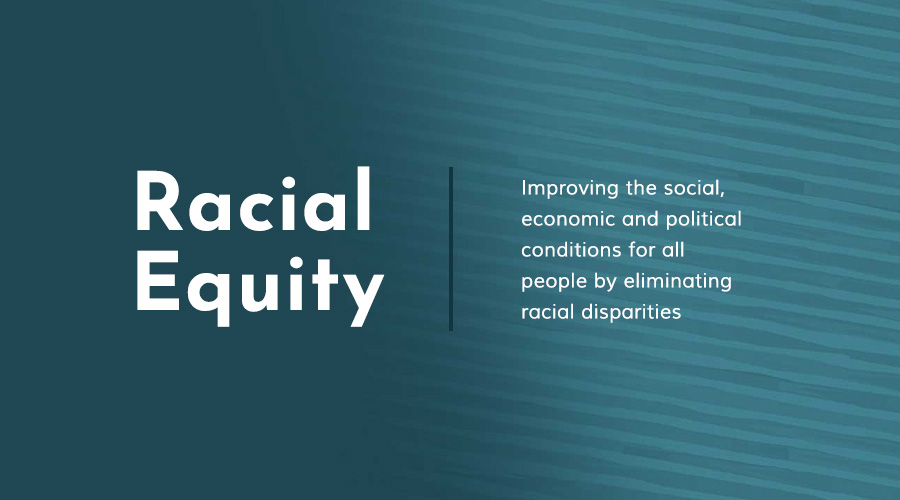Racial equity is an important term that is commonly misunderstood. It is defined as improving the social, economic and political conditions for all people by eliminating racial disparities. While there is a lack of knowledge surrounding the term and similar terminology, it is imperative that individuals and communities understand so that racial equity is achieved.
Ahead, we discuss racial equity in more depth and how it differs from racial equality. We also provide ideas for how individuals can advance racial equity in their own lives and communities.
Further Understanding the Meaning of Racial Equity
Racial equity is an ongoing process used to resolve racial inequities throughout society. Some areas of inequity may include education, employment, homeownership, the environment and healthcare. When people work to improve racial equity, it helps society as a whole because it provides people with equal access to the resources and opportunities they need to thrive.
One example of racial equity is the use of affirmative action policies in the college admissions process. Providing students from underrepresented communities with more equitable access to pursue higher education gives them a chance to succeed. Ultimately, this type of opportunity gives them the chance to improve their economic standing. A 2020 study published by the Review of Economics and Statistics found that affirmative action helps students of color acquire 0.8 more years of education.
Racial Equity vs. Racial Equality
Although racial equity and racial equality both aim to better the lives of everyday people, the two concepts are distinctly different. Equality focuses on treating everyone and their needs in the same way, while equity aims to meet the needs of people by treating each person differently based on their unique situation.
Examples of Racial Inequity
Workplace
Because of longstanding structural biases, the U.S. workforce is saturated with racial inequities. Data from the Bureau of Labor Statistics (BLS) shows that Black professionals are only half as likely to gain employment during a four-week period as white professionals. Research from the U.S. Census Bureau also indicates that in February 2022, the unemployment rate for Black men was double that of white men.
For women of color, the intersection of racism and sexism in the workplace also hinders their career mobility and earning potential. Data from the Center for American Progress (CAP) shows that Latinx women have the biggest pay gap. In 2020, for every $1 earned by white, non-Hispanic men, Latinx women earned only 57 cents. There is also a large pay gap for Black women, who earned just 64 cents for every $1 earned by a white, non-Hispanic man.


Get Industry leading insights from Robert F. Smith directly in your LinkedIn feed.
Get Industry leading insights from Robert F. Smith directly in your LinkedIn feed.
Education
Past data has revealed that schools with more students from underrepresented communities were more likely to have classroom instructors who are not fully certified in education or the subject they teach. For example, Baltimore, MD, which has the eleventh largest Black population in the U.S., had 265 educational professionals teaching in the city’s public school district throughout 2020 whose teaching licenses had expired. When education professionals teach with expired licenses or without a full teaching certification, it can hinder students’ ability to learn. A lack of proper instruction can negatively impact student progress, which could prevent students from pursuing higher education. Ultimately, a lack of education could also impact a student’s ability to earn a high-paying, successful professional life.
Racial inequities also persist in higher education, where Black students are 250% less likely to graduate from four-year public universities than white students. Data from the report also shows that Latinx students are 60% less likely to graduate from four-year universities than their white counterparts. Other factors that contribute to racial inequities in higher education include a lack of financial support, inadequate high school preparation and social exclusion.
Why Is Racial Equity Important?
Racial equity is vital to the social, financial and educational growth of communities throughout the U.S. Creating a more inclusive and equitable society for all racial groups will provide traditionally underrepresented communities with access to essential medical, financial and educational services. Working to eradicate racial inequities throughout society can help decrease poverty and increase the income of working-class families in low-income neighborhoods. The W.K. Kellogg Foundation estimates that removing racial inequities in education, healthcare and employment may also help the U.S. economy expand to $8 trillion by 2050.
How to Advance Racial Equity
People can advance racial equity in their daily lives in a few ways. Individuals should hold their elected leaders accountable to advance racial equity for their local and state constituents. People can also put pressure on political officials to make a change by joining equity-focused advocacy groups that work directly with community leaders. Petitioning, mobilizing and voting are all effective tactics that groups can use to motivate lawmakers to promote racial equity. Individuals can also promote racial equity by normalizing racial justice practices in their everyday lives. Having open discussions about racial equity at home, in your place of work and with friends will encourage fruitful conversations about this critical topic.
Philanthropist Robert F. Smith is passionate about using his resources and platform to close racial inequities. As the Chairman of Student Freedom Initiative, Smith has helped to empower students enrolled at participating Historically Black Colleges and Universities (HBCUs) and other Minority Serving Institutions (MSIs). The organization provides a wealth of academic, financial and career resources, including tutoring services and career planning. The ultimate goal of the organization is to set students up for academic and professional success.
Learn more about how Smith is advancing racial equity by following him on LinkedIn.






